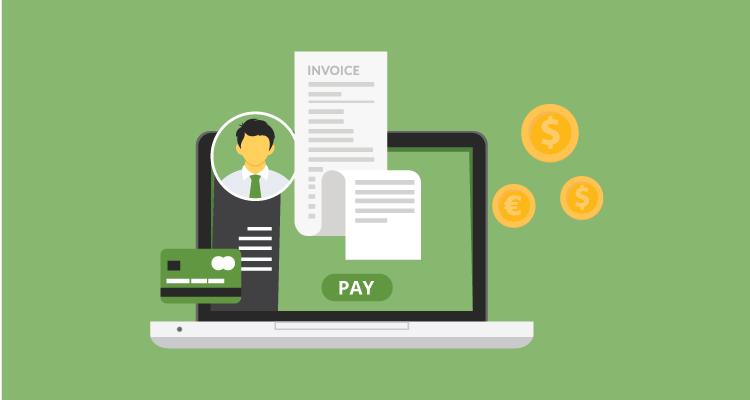Going into business for yourself is a big deal. There’s always a long to-do list and you’ll find yourself wearing many different hats from time to time. Your business is more of a hobby if you’re not making money. Properly managing and organizing your small business finances can contribute to the success of your business and make sure you’re hitting your profit goals. Like personal finance, there are plenty of ways to organize your small business finances depending on what your goals are.
Here are 6 key steps to take.
Table of Contents
ToggleTrack Your Income
It’s important to know how much you make. You can track your income, monthly, weekly, or even daily so you can better understand how much money you’re bringing in.
I like to use a spreadsheet to track my income and I break my income down into categories which represent the different streams of income my business has.
If you use invoicing or bookkeeping software, you can also use a program to help you track your business income. Another benefit of tracking your income is that it allows you to monitor things better so you can determine if and how the numbers fluctuate. If you have a specific income goal, you’ll definitely want to start tracking your income regularly as well.
Track and Audit Your Expenses
If you’re going to track your income, you need to track your expenses as well. Entrepreneurs have important expenses that must be paid in order to keep the business running.
You can deduct some of your business expenses on your taxes and this will lower your taxable income. It will also lower the amount of money that hits your pocket. As a result, most business owners actually net a lower income than what they gross.
You can track your expenses the same way you track your expenses. Doing this will allow you to audit your expenses regularly as well so can make sure you’re not overspending on unnecessary costs.
Keep a Separate Bank Account
As soon as your business starts making money, you need to separate your finances. I kept all my personal and business finances in one bank account during my first year of entrepreneurship and I truly regretted it. I was super confused around tax time and everything was so unorganized. It took countless hours to get back reorganized.
You can avoid this headache by simply opening a separate bank account for your business. If you have an EIN number, you can open up a business bank account, or you can just open a separate personal account and treat it like a business account.
Allow your income to filter through that account and you can pay all your expenses from that account. Each month you’ll receive a statement and it will be easier to keep track of your cash flow.
Protect Your Business
Each business requires its own level of protection, but you may want to consider getting some insurance or establishing an LLC or an S-Corp. Establishing an LLC or S-Corp allows you to separate your business identity and finances from your personal finances.
For example, if you ever had to undergo any legal issues, your personal property and assets would not be liable. Be sure to renew any important certifications or licenses you need to remain compliant by adding it to your calendar. Protecting your business is the best way to ensure any financial issues that may affect your business doesn’t pour into your personal assets.
Consider How You’ll Receive Payments
You want to make receiving payments a smooth and easy process. To do that, you need to determine how you’ll accept payments. Making this choice depends on how your business works. If you’re providing a service, you may want to send invoices out regularly. If you’re selling products, you may want to accept credit card payments at your location or set up an online cart option for your website.
Compare options and consider how much the fees will be in order to find the right solution for you.
Sort Hard Copies and Digitize Them
I hate dealing with tons of paper. That’s why I try to digitize most of the financial paperwork for my business to stay organized. You can save documents digitally and protect them by using a 3rd party secure service. You don’t have to store everything on your computer and probably shouldn’t for security reasons.
If you prefer to keep some hard copies, be sure to sort through them and organized them in a file cabinet. You’ll want to keep track of important paperwork like:
- Accounting and bookkeeping records
- Bank records
- Contracts, including leases and purchase agreements
- Trademark applications and patents
- Permits and licenses
- Employee records
Trust me, getting these documents organized and digitized (if necessary will pay off big time when taxes are due).
Schedule Regular Money Meetings
It’s important to schedule time to sit down and go over your business finances regularly. Your income and expenses will fluctuate, so it’s best to stay on top of things by checking in often. Add a weekly finance meeting to your calendar so you can stay organized and avoid falling behind on things.
When you fall off the wagon with your business finances, it makes it difficult to stay productive and understand what’s truly going on with your situation.
This can allow burdens like debt to creep in and deter you from financial success with your business.
These basic 6 starter steps will help you get on track and better organize your small business finances. You can also do other things like create a business budget, start contributing to a Roth IRA or SEP IRA for retirement, get accounting software, or even hire an accountant or tax professional to touch base with each quarter.















